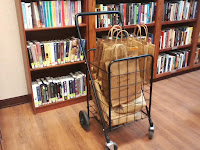Beginning
Picture a penny in your mind's eye. Because you've probably encountered a penny hundreds if not thousands of times over the years, you should have no trouble remembering what one looks like. You've committed this image to memory. Or have you?
Have you ever felt a crushing wave of panic when you can't for the life of you remember the name of that actor in the movie you saw last week, or you walk into a room only to forget why you went there in the first place? If you're over forty, you're probably not laughing. You might even be worried that these lapses in memory could be an early sign of Alzheimer's or dementia. In reality, for the vast majority of us, these examples of forgetting are completely normal. Why? Because while memory is amazing, it is far from perfect. Our brains aren't designed to remember every name we hear, plan we make, or day we experience. Just because your memory sometimes fails doesn't mean it's broken or succumbing to disease. Forgetting is actually part of being human.
In Remember, neuroscientist and acclaimed novelist Lisa Genova delves into how memories are made and how we retrieve them. You'll learn whether forgotten memories are temporarily inaccessible or erased forever and why some memories are built to exist for only a few seconds (like a passcode) while others can last a lifetime (your wedding day). You'll come to appreciate the clear distinction between normal forgetting (where you parked your car) and forgetting due to Alzheimer's (that you own a car). And you'll see how memory is profoundly impacted by meaning, emotion, sleep, stress, and context. Once you understand the language of memory and how it functions, its incredible strengths and maddening weaknesses, its natural vulnerabilities and potential superpowers, you can both vastly improve your ability to remember and feel less rattled when you inevitably forget.
Quotes from the book:
- "...our brains have evolved to remember what is meaningful. They forget what isn't" (p. 5).
- "...forgetting is a normal part of being human" (p. 7).
- "We can only remember seven plus or minus two things for fifteen to thirty seconds in working memory" (p. 41).
- "We have three basic types of long-term memories: memory for information, memory for what happened, and memory for how to do things" (p. 51).
- "MAKE TO-DO LISTS" (p. 138).
==============================================================
I was reading this book and got to page 138 exactly 30 minutes before this was set to post on my blog. "I've got to share this MAKE TO-DO LISTS quote," I thought. So I'm back on my computer, telling the whole world that I definitely DO make lists of every little thing I need to do each day. For last week's Thursday Thoughts, I had this as #10:
Do you have a system? Before I leave my apartment, I count what's in my pockets (jeans with pockets are my retirement uniform):
- pen and paper
- pills and phone
- keys and comb
- clippers and Kleenex
- mask and money
- plus calendar and Kindle, if I take my cart, since these are too big for my pockets
I also tell everybody the pen and paper ARE my memory. It's how I remember things. I hate to go down to get my mail and get back up to my apartment before I remember I was supposed to also take my library books back to the office to be returned. So I may be retired, but I still use a daily planner to jot down which events I've signed up for and what time I'm supposed to meet a friend for lunch in the Circle@Crown Café. I haven't finished the book yet, so I haven't officially "rated" it, but it's a very good book.
Gilion at Rose City Reader hosts
Book Beginnings on Fridays.



2 comments:
A book I'd love to read. I wonder about my memories!
This sounds like a really interesting book. I read Still Alice years ago and it has stayed with me all this time. Even though that was fiction, it helped me process some of what my grandmother had been going through with her Dementia. I worry a lot about Alzheimer's and Dementia because I have family who had them both. My mom is more forgetful than she used to be and so am I. It's something I sometimes think I am hyper sensitive too. So, this book might be good for me to read. Oh, and lists! Even when I was a student, taking notes was essential for me to remember things and that now extends to making lists. I haven't always been a list maker, but I definitely have become one. There's just too much in my head.
I hope you have a great weekend, Bonnie.
Post a Comment